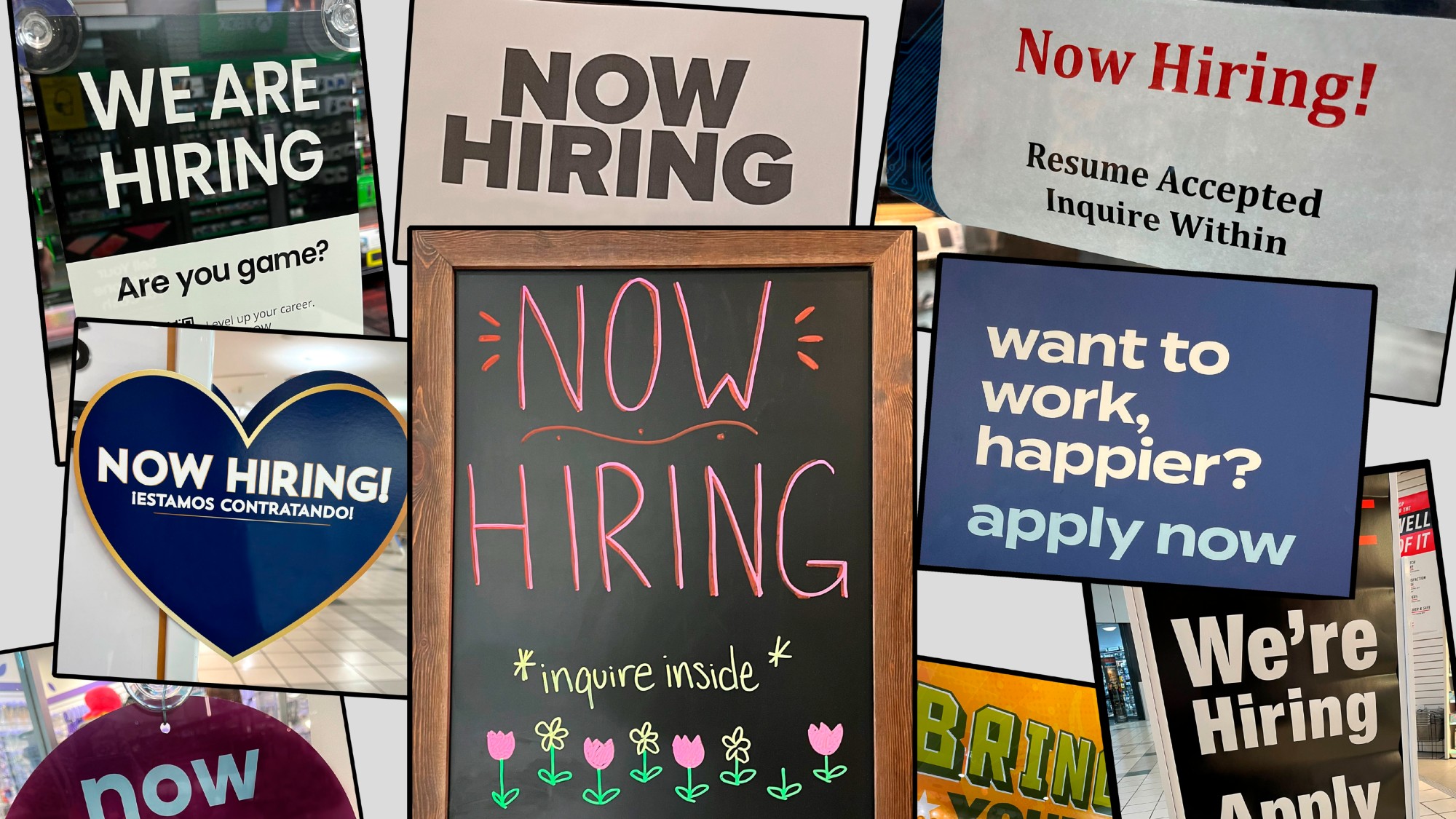What is 'career catfishing' and why are Gen Z doing it?
Successful job applicants are increasingly disappearing before their first day

A free daily email with the biggest news stories of the day – and the best features from TheWeek.com
You are now subscribed
Your newsletter sign-up was successful
A study has found that it takes between 100 and 200 applications to receive a job offer these days. So why would anyone apply for a role, get through the interviews, land the post, but then… never turn up?
The trend, known as "career catfishing", is a curious new office shift that sheds light on how younger people feel about the treatment they go through during the recruitment process.
Professional ghosting
Catfishing, where someone pretends to be someone else online, is a "well-known" practice in the dating world, said Forbes, and one sometimes used by financial con artists, too.
The Week
Escape your echo chamber. Get the facts behind the news, plus analysis from multiple perspectives.

Sign up for The Week's Free Newsletters
From our morning news briefing to a weekly Good News Newsletter, get the best of The Week delivered directly to your inbox.
From our morning news briefing to a weekly Good News Newsletter, get the best of The Week delivered directly to your inbox.
Now, the "same concept" has "quietly slipped" into the jobs market, said RTE, and it's pretty simple: "you apply for a job, you land a job, accept the offer" and then disappear before your first day.
A survey found that 34% of Gen Z jobseekers have indulged in this form of professional ghosting, but they're not the only ones: 24% of millennials, 11% of Gen X and 7% of boomers have also done it.
"What’s happening with Gen Z and their approach to work is pure chaos", Yakov Filippenko, CEO and founder of recruitment website Intch told Personnel Today. And because "work itself" has "turned into a meme", Gen Z "treats it that way".
The prominence of Gen Z among career catfishing statistics may offer a "negative view" of younger jobseekers, making people think they "lack professionalism" and "dismiss conventional employment norms", said RTE. But they also offer a "snapshot" of the "frustration" young people face in finding jobs.
A free daily email with the biggest news stories of the day – and the best features from TheWeek.com
Long and dispiriting
Recruitment has become a "labyrinthine, opaque and time-consuming" process, said The Guardian. In the course of a "long and dispiriting" recruitment format, applicants may have "got a better offer" or "simply changed their minds".
They don't feel they "owe prospective employers anything" because they feel they've been "treated very badly by them".
The complexity of finding a job is partly because a significant number of positions being advertised don't exist – they're "ghost jobs", or openings posted by companies to make it appear they're recruiting and "therefore growing". Or they're sometimes posted to "keep their present employees on their toes".
In a mirror of career catfishing by job applicants, there's a swing known as "professional ghosting", when companies put hopefuls through "multiple interviews", sometimes even making job offers, before "abruptly ending all communication".
If these trends collide, it sounds like the future might see "ghost employees for ghost jobs".
Chas Newkey-Burden has been part of The Week Digital team for more than a decade and a journalist for 25 years, starting out on the irreverent football weekly 90 Minutes, before moving to lifestyle magazines Loaded and Attitude. He was a columnist for The Big Issue and landed a world exclusive with David Beckham that became the weekly magazine’s bestselling issue. He now writes regularly for The Guardian, The Telegraph, The Independent, Metro, FourFourTwo and the i new site. He is also the author of a number of non-fiction books.
-
 Why is the Trump administration talking about ‘Western civilization’?
Why is the Trump administration talking about ‘Western civilization’?Talking Points Rubio says Europe, US bonded by religion and ancestry
-
 Quentin Deranque: a student’s death energizes the French far right
Quentin Deranque: a student’s death energizes the French far rightIN THE SPOTLIGHT Reactions to the violent killing of an ultra-conservative activist offer a glimpse at the culture wars roiling France ahead of next year’s elections.
-
 Secured vs. unsecured loans: how do they differ and which is better?
Secured vs. unsecured loans: how do they differ and which is better?the explainer They are distinguished by the level of risk and the inclusion of collateral
-
 Ski town strikers fight rising cost of living
Ski town strikers fight rising cost of livingThe Explainer Telluride is the latest ski resort experiencing a patroller strike
-
 Unemployment rate ticks up amid fall job losses
Unemployment rate ticks up amid fall job lossesSpeed Read Data released by the Commerce Department indicates ‘one of the weakest American labor markets in years’
-
 Employees are branching out rather than moving up with career minimalism
Employees are branching out rather than moving up with career minimalismThe explainer From career ladder to lily pad
-
 Out of office: Microretirement is trending in the workplace
Out of office: Microretirement is trending in the workplaceThe explainer Long vacations are the new way to beat burnout
-
 Why has America’s economy gone K-shaped?
Why has America’s economy gone K-shaped?Today's Big Question The rich are doing well. Everybody else is scrimping.
-
 Being a school crossing guard has become a deadly job
Being a school crossing guard has become a deadly jobUnder the Radar At least 230 crossing guards have been hit by cars over the last decade
-
 Is the job market frozen or faltering?
Is the job market frozen or faltering?Today's Big Question Layoffs raise alarms while young workers eye law school
-
 Gen Z is facing a credit score crisis
Gen Z is facing a credit score crisisIn the Spotlight The average Gen Z credit score has dropped three points in 2025